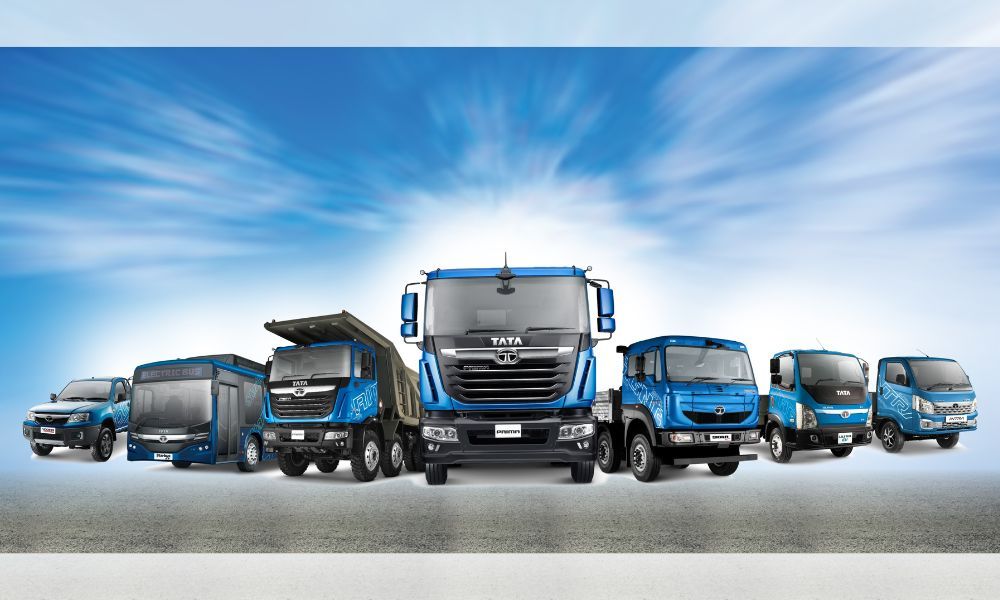HCV Trucks: Driving the Future of Heavy-Duty Transportation

The global transportation sector is undergoing one of the most significant transformations in history. With industries pushing toward efficiency, sustainability, and innovation, heavy-duty vehicles are at the centre of this change. Among these, HCV trucks (Heavy Commercial Vehicles) play an indispensable role in logistics, construction, mining, and long-haul transportation.
From moving raw materials across states to delivering goods that fuel everyday life, HCVs are the backbone of economies worldwide. As businesses strive to balance performance with eco-conscious practices, the evolution of HCV trucks is redefining how the world moves.
Understanding HCV Trucks and Their Role
HCV trucks are vehicles designed for heavy-duty applications, typically with a Gross Vehicle Weight (GVW) of over 16 tonnes. These vehicles are engineered to carry large payloads, making them the preferred choice for industries requiring durability and reliability.
Key roles of HCVs include:
- Transportation of goods across long distances, ensuring supply chains remain unbroken.
- Construction support, moving cement, sand, and heavy machinery.
- Mining operations, transporting raw minerals and resources.
- Public infrastructure projects contribute to the development of roads, bridges, and other essential utilities.
The importance of these trucks goes beyond logistics; they are vital for national growth and industrial development.
Why HCV Trucks Are Evolving
The traditional heavy-duty vehicle industry has relied on diesel engines for decades. While these trucks provided the required torque and strength, they also contributed to rising emissions, fuel dependency, and high operational costs.
Recent years have seen a shift driven by:
- Environmental concerns: Stricter emission norms and global sustainability goals.
- Rising fuel prices: Encouraging businesses to seek alternatives.
- Technological innovation: From electric drivetrains to advanced telematics.
- Government Incentives: Policies Supporting Greener Transportation Solutions.
This combination is reshaping the HCV trucks market, pushing manufacturers and logistics companies toward more sustainable, future-ready solutions.
Electric and Hybrid HCVs: The New Age of Mobility
One of the biggest game-changers in the heavy-duty transport sector is the rise of electric and hybrid HCV trucks. These vehicles are designed to reduce emissions, lower operating costs, and meet the growing demand for sustainable transportation.
Benefits include:
- Lower emissions: Significantly reducing carbon footprints.
- Reduced fuel costs: Electric trucks eliminate dependency on diesel.
- Lower maintenance: Fewer moving parts mean reduced wear and tear.
- Noise reduction: Quieter operations benefit urban environments.
Such vehicles are becoming particularly popular in urban freight, last-mile delivery for heavy loads, and environmentally sensitive zones.
The Importance of Design and Innovation
For HCV trucks, design is about more than just aesthetics; it’s about function, durability, and efficiency. Modern vehicles incorporate:
- Aerodynamic designs to improve fuel efficiency.
- Smart cabins with ergonomic layouts for driver comfort.
- Telematics systems that provide real-time data for better fleet management.
- Safety features like advanced braking systems, blind-spot monitoring, and lane assist.
These features make heavy commercial vehicles not only reliable but also aligned with global standards of performance and safety.
Challenges in Heavy-Duty Transport
Despite rapid advancements, the heavy-duty sector faces certain challenges:
- Infrastructure Readiness: Electric and hybrid HCV trucks need charging or refuelling stations, which are still being developed in many regions.
- High Initial Costs: While long-term savings are evident, upfront investment can deter small businesses.
- Driver Shortages: The industry continues to face challenges in hiring and retaining skilled drivers, especially for long-haul routes.
- Regulatory Compliance: Different regions have varying standards, making it difficult for businesses to operate seamlessly across borders.
Overcoming these barriers requires collaboration between manufacturers, policymakers, and logistics companies.
HCV Trucks in India: A Growing Market
In India, HCV trucks are crucial for various sectors, including infrastructure, agriculture, and e-commerce logistics. With government initiatives such as the National Electric Mobility Mission Plan and a focus on reducing emissions, the adoption of cleaner and smarter heavy-duty vehicles is on the rise.
The demand is further fuelled by:
- Expanding highways and logistics corridors.
- The growth of urban centres requires more efficient supply chains.
- Increasing focus on sustainability and smart city development.
India’s position as a growing economy ensures that the heavy-duty vehicle segment will remain a critical area of investment.
Sustainability and the Future of HCV Trucks
The global shift toward sustainability is no longer optional. HCV trucks are evolving to meet eco-friendly standards through:
- Electric drivetrains powered by renewable energy.
- Hydrogen fuel cells as an alternative for long-haul travel.
- Smart routing and logistics software to reduce idle times and fuel wastage.
- Recyclable materials in manufacturing to reduce environmental impact.
These trends ensure that heavy-duty vehicles continue to be both efficient and environmentally responsible in the future.
Why Businesses Should Invest in Modern HCVs
For businesses, upgrading to advanced HCV trucks is more than just compliance; it’s a strategic advantage. Benefits include:
- Cost savings from fuel efficiency and reduced maintenance.
- Brand reputation as a sustainable and responsible organisation.
- Operational efficiency with real-time tracking and fleet optimisation.
- Compliance readiness in response to stricter environmental laws and standards.
Forward-thinking companies that embrace innovation early will lead the way in logistics and transportation.
HCV trucks are the engines of economic growth, supporting industries, infrastructure, and everyday life. As technology advances and sustainability becomes increasingly central to transportation, these vehicles are transitioning from traditional diesel engines to electric, hybrid, and more intelligent alternatives. Whether through pick up rental Dubai or investing in modern HCV solutions, businesses can enhance efficiency while reducing environmental impact.
The future of HCV trucks lies in innovation, efficiency, and environmental responsibility. Businesses and governments alike must recognise their critical role in building sustainable supply chains and resilient economies. The road ahead is clear: heavy-duty transport is evolving, and investing in future-ready solutions is no longer a choice; it’s an imperative.